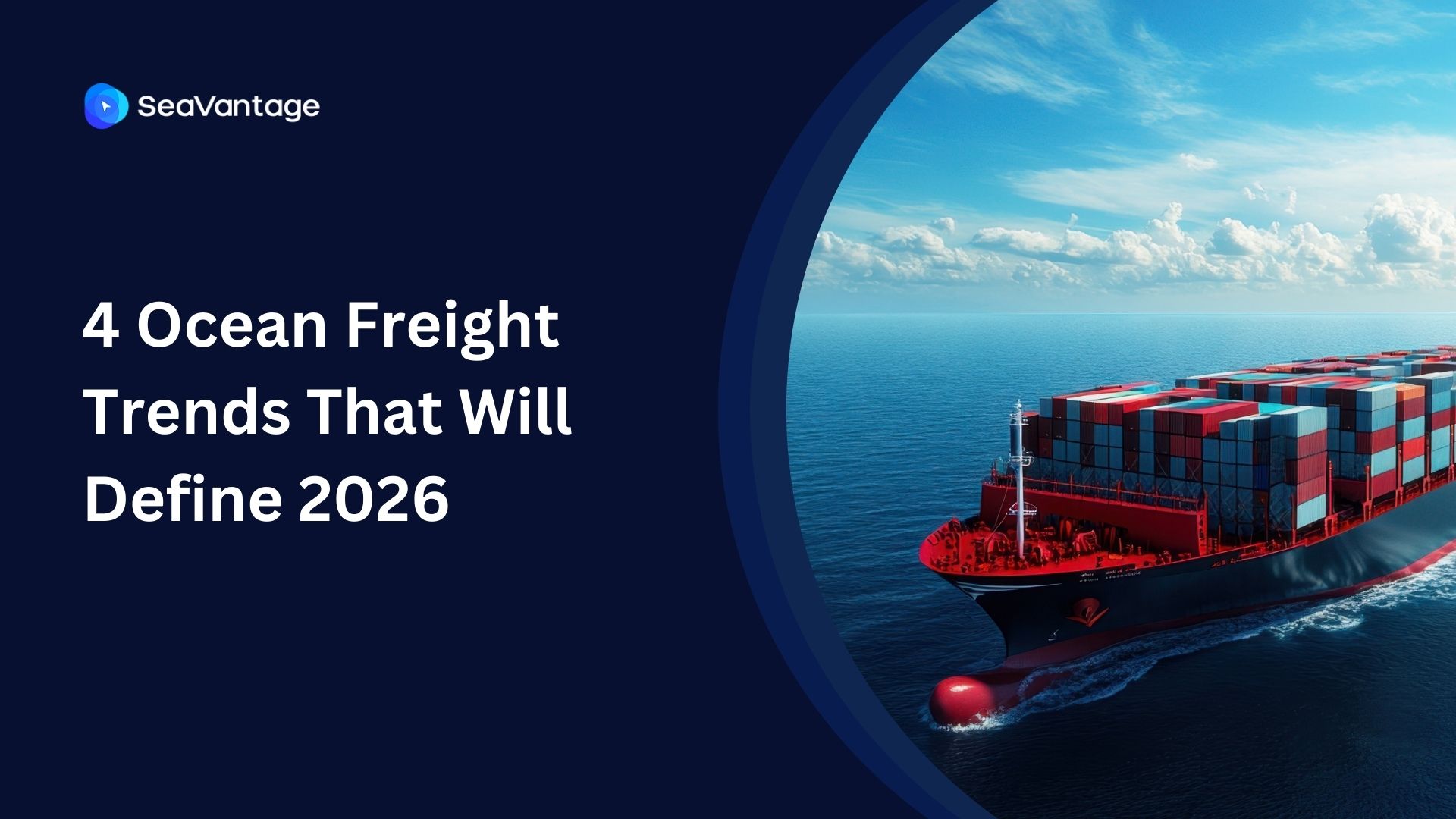The Top 10 Largest Shipping Carriers By Fleet Size and Capacity 2024
Introduction
The global shipping industry is a crucial component of international trade, handling the transportation of goods across oceans and connecting markets worldwide. Shipping carriers are the backbone of this industry, ensuring the efficient and timely delivery of cargo, thereby supporting global economic growth. This article aims to highlight the ten largest shipping carriers in the world, providing a detailed look into their operations, fleet sizes, and recent developments.
Methodology
The ranking of the largest shipping carriers is based on fleet size, TEU (Twenty-foot Equivalent Unit) capacity, and global reach. The data used in this article is sourced from the latest Alphaliner Top 100 report, which provides comprehensive and authoritative insights into the shipping industry. The rankings are determined by the total TEU capacity of each carrier's fleet, which reflects their ability to transport containers globally.
1. Mediterranean Shipping Company (MSC)
Overview and History
MSC, founded in 1970 by Gianluigi Aponte, is the world's largest container shipping company, headquartered in Geneva. With 524 offices in 155 countries and over 100,000 employees, MSC operates more than 215 trade routes and calls at over 500 ports. The company runs some of the largest container ships, including the MSC Turkiye and MSC Michel Cappellini, with capacities up to 24,346 TEU. Under the leadership of Diego Aponte and CEO Soren Toft, MSC has diversified into cruise operations, rail logistics, and air cargo, focusing on sustainability and digital innovation.
Fleet Size and TEU Capacity
MSC operates 846 vessels with a combined capacity exceeding 6 million TEUs, making it the leader in container shipping capacity.
Key Routes and Services
MSC offers extensive coverage across major trade routes, including Asia-Europe, trans-Pacific, and trans-Atlantic services.
Recent Developments and Innovations
MSC has been investing heavily in sustainable shipping practices, including the use of biofuels and the development of more efficient vessels. Additionally, MSC is enhancing its digital capabilities to improve operational efficiency and customer service.
2. Maersk Line
Overview and History
Maersk Line, founded in 1928, is a Danish international container shipping company and the largest subsidiary of Maersk. It is the world's second-largest container shipping company by fleet size and cargo capacity, operating over 708 vessels with a total capacity of about 4.1 million TEU. The company offers services to 374 ports in 116 countries and employs 83,625 people.
Fleet Size and TEU Capacity
Maersk operates approximately 713ships with a total capacity of around 4.3 million TEUs.
Key Routes and Services
Maersk provides comprehensive global coverage, with a strong focus on Asia-Europe, trans-Pacific, and Latin American routes.
Recent Developments and Innovations
Maersk is committed to achieving carbon neutrality by 2050 and has been investing in sustainable technologies, including methanol-powered vessels. The company is also expanding its digital offerings to enhance supply chain visibility and customer service.
3. CMA CGM Group
Overview and History
CMA CGM, founded in 1978 by Jacques Saadé, is a French shipping and logistics company headquartered in Marseille, France. It is the third-largest container shipping company globally, with a 2023 revenue of $47 billion. CMA CGM operates a fleet of 593 vessels, serving 420 ports in 160 countries through 400 offices and 750 warehouses, and employing 155,000 people. The company engages in shipping, port operations, supply chain management, and warehousing.
Fleet Size and TEU Capacity
CMA CGM operates about 646 vessels with a total capacity of over 3.7 million TEUs.
Key Routes and Services
The company offers extensive services across Asia, Europe, North America, and emerging markets.
Recent Developments and Innovations
CMA CGM is focusing on environmental sustainability, including the use of liquefied natural gas (LNG) for some of its new ships. The company is also enhancing its digital capabilities through investments in technology and logistics services.
4. COSCO Shipping Lines
Overview and History
China COSCO Shipping Corporation Limited (COSCO Shipping) is a state-owned multinational conglomerate based in Shanghai, formed in January 2016 from the merger of COSCO Group and China Shipping Group. It operates one of the world's largest fleets with 1,310 vessels and a capacity of 105.92 million DWT as of March 2020. The company expanded through acquisitions like Orient Overseas International Limited and investments in global port operations, including the Piraeus Port Authority. COSCO Shipping is involved in integrating 5G technology and exploring blockchain applications in partnership with Alibaba. It faced and then saw the lifting of U.S. sanctions related to its tanker subsidiary's dealings with Iran in 2019 and early 2020.
Fleet Size and TEU Capacity
COSCO operates around 507 vessels with a total capacity of approximately 3.2 million TEUs.
Key Routes and Services
COSCO has a strong presence in Asia and is expanding its international routes, particularly in Europe and North America.
Recent Developments and Innovations
The company is focusing on expanding its fleet and integrating digital technologies to improve efficiency. COSCO is also investing in sustainable shipping solutions to reduce its environmental impact.
5. Hapag-Lloyd
Overview and History
Hapag-Lloyd AG is a German international shipping and container transportation company, formed in 1970 through the merger of Hamburg-American Line (HAPAG) and Norddeutscher Lloyd. It is the fourth largest container shipping company in the world. The company has grown through acquisitions, including CP Ships in 2005, CSAV's container business in 2014, and United Arab Shipping Company in 2017.
Fleet Size and TEU Capacity
Hapag-Lloyd operates 287 vessels with a combined capacity of about 2.1 million TEUs.
Key Routes and Services
The company provides extensive services in transatlantic, Middle Eastern, and Latin American trade routes.
Recent Developments and Innovations
Hapag-Lloyd is focusing on enhancing digital customer experience and sustainability. Recent investments include new, fuel-efficient ships and improved digital platforms for customer interactions.
6. Evergreen Line
Overview and History
Founded in 1968, Evergreen is a Taiwanese shipping company known for its significant presence in the global shipping industry. The company emphasizes profitability, employee welfare, and societal contributions, and is known for its commitment to environmental sustainability, developing eco-friendly ships and reducing greenhouse gas emissions. Evergreen Marine also values transparency and ethical practices, adhering to global regulations. Through strategic alliances and digital platforms, the company enhances its operational competitiveness and supports global trade, all while upholding strong ESG principles.
Fleet Size and TEU Capacity
Evergreen operates around 221 vessels with a total capacity of approximately 1.7 million TEUs.
Key Routes and Services
Evergreen has a strong presence in Asia and offers extensive global coverage.
Recent Developments and Innovations
The company is investing in new, eco-friendly vessels and expanding its fleet to enhance its service offerings. Evergreen is also improving its digital capabilities to better serve its customers.
7. Ocean Network Express (ONE)
Overview and History
Ocean Network Express Holdings, Ltd. (ONE) is a Japanese container shipping company formed in 2017 as a joint venture by Nippon Yusen Kaisha (NYK), Mitsui O.S.K. Lines (MOL), and K Line. It inherited the container shipping operations of its parent companies, creating a fleet with a capacity of about 1.4 million TEU. ONE is headquartered in Japan, with operational headquarters in Singapore and regional headquarters in the UK, US, Hong Kong, and Brazil. The company started operations in April 2018 and has invested in expanding its fleet and operations, including introducing the magenta-painted ONE Commitment and establishing a joint venture with PSA International.
Fleet Size and TEU Capacity
ONE operates about 243 vessels with a combined capacity of around 1.9 million TEUs.
Key Routes and Services
The company has a strong presence in Asia and a growing global network.
Recent Developments and Innovations
ONE is focusing on digital transformation to enhance operational efficiency and customer service. The company is also investing in sustainable shipping practices.
8. HMM (Hyundai Merchant Marine)
Overview and History
HMM Company Limited, formerly known as Hyundai Merchant Marine, is South Korea's leading container transportation and shipping company, moving the largest portion of the country's exports. Following Hanjin Shipping's bankruptcy, HMM became the top Korean national container carrier. The company operates with international headquarters, subsidiaries, branches, and liaison offices globally, earning approximately eight trillion Korean won annually. Notably, HMM launched the world's largest container ships in 2020. HMM is also a member of THE Alliance, partnering with major global shipping lines.
Fleet Size and TEU Capacity
HMM operates 77 vessels with a total capacity of about 843,429 TEUs.
Key Routes and Services
HMM is a key player in Asia-Europe and trans-Pacific routes.
Recent Developments and Innovations
The company is expanding its fleet and focusing on eco-friendly shipping solutions. HMM is also investing in digital technologies to improve its operations.
9. ZIM Integrated Shipping Services
Overview and History
ZIM Integrated Shipping Services Ltd., commonly known as ZIM, is an Israeli international cargo shipping company founded in 1945 and headquartered in Haifa. It is among the top 20 global carriers and has been publicly traded on the New York Stock Exchange since 2021. The company was originally established as the ZIM Palestine Navigation Company Ltd and has a significant historical role, particularly in transporting immigrants to Israel in its early years.
Fleet Size and TEU Capacity
ZIM operates around 129 vessels with a total capacity of approximately 739,394 TEUs.
Key Routes and Services
The company has a strong presence in trans-Pacific and Asia-Europe routes.
Recent Developments and Innovations
ZIM is focusing on technological advancements and expanding its service offerings. The company is also investing in digital solutions to improve operational efficiency and customer satisfaction.
10. Yang Ming Marine Transport Corporation
Overview and History
Yang Ming Marine Transport Corporation, based in Keelung, Taiwan, is a container shipping company founded in 1972, with historical ties to the China Merchants Steam Navigation Company. It operates 101 container ships, including vessels up to 14,000 TEU, and 17 bulk carriers. In 2018, Yang Ming transported unused nuclear fuel rods from Taiwan to the US, and in 2019, it added two 14,000 TEU ships, YM Warranty and YM Wellspring, to its fleet and partnered with Canadian Pacific Railway to enhance container transport from the Port of Vancouver across Canada.
Fleet Size and TEU Capacity
Yang Ming operates around 90 vessels with a total capacity of approximately 700,000 TEUs.
Key Routes and Services
The company has extensive operations in Asia and is expanding its international routes.
Recent Developments and Innovations
Yang Ming is investing in new vessels and digitalization projects to enhance its operational efficiency and customer service.
2025년 9월, 주요 글로벌 항만에서 어떤 운송사가 가장 긴 선박 체류 시간을 기록했는지 확인해보세요. 트렌드를 비교하고, 지연을 파악하며, 전체 항만 데이터를 통해 운송 전략을 최적화할 수 있습니다.
2025년 8월, 주요 글로벌 항만에서 어떤 운송사가 가장 긴 선박 체류 시간을 기록했는지 확인해보세요. 트렌드를 비교하고, 지연을 파악하며, 전체 항만 데이터를 통해 운송 전략을 최적화할 수 있습니다.
2025년 7월, 주요 글로벌 항만에서 어떤 운송사가 가장 긴 선박 체류 시간을 기록했는지 확인해보세요. 트렌드를 비교하고, 지연을 파악하며, 전체 항만 데이터를 통해 운송 전략을 최적화할 수 있습니다.
Explore how tariffs, blank sailings, port congestion, and canal disruptions reshaped global ocean shipping in 2025 — and what supply chain leaders must do next.
Is your ocean supply chain ready for 2026? Discover 4 critical trends, from weather disruptions to strategic booking, and how to adapt.
iscover the 4 critical ocean freight trends for 2026, from the Red Sea reopening and fleet overcapacity to shifting global trade maps. Prepare your supply chain now.



.svg)







.png)